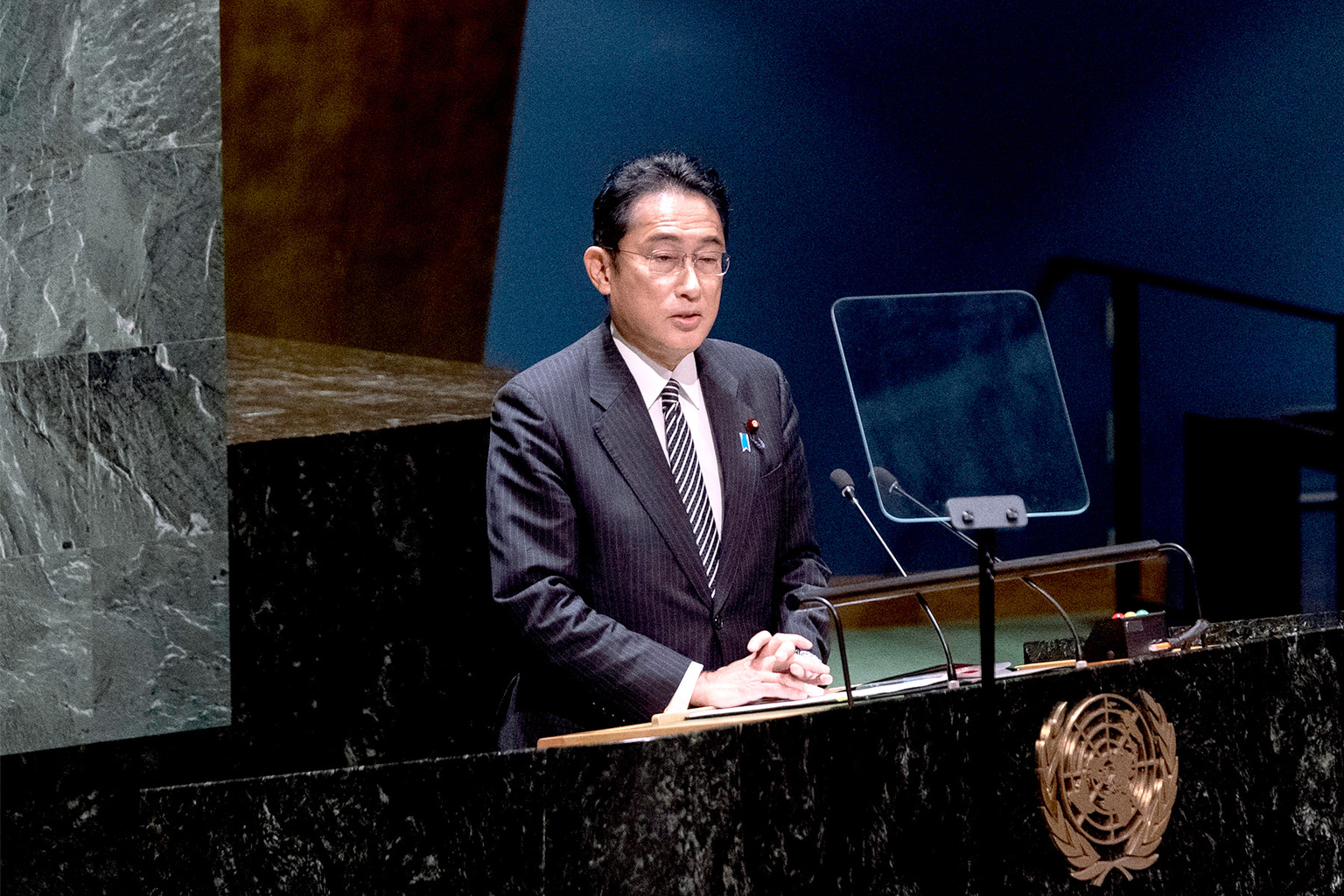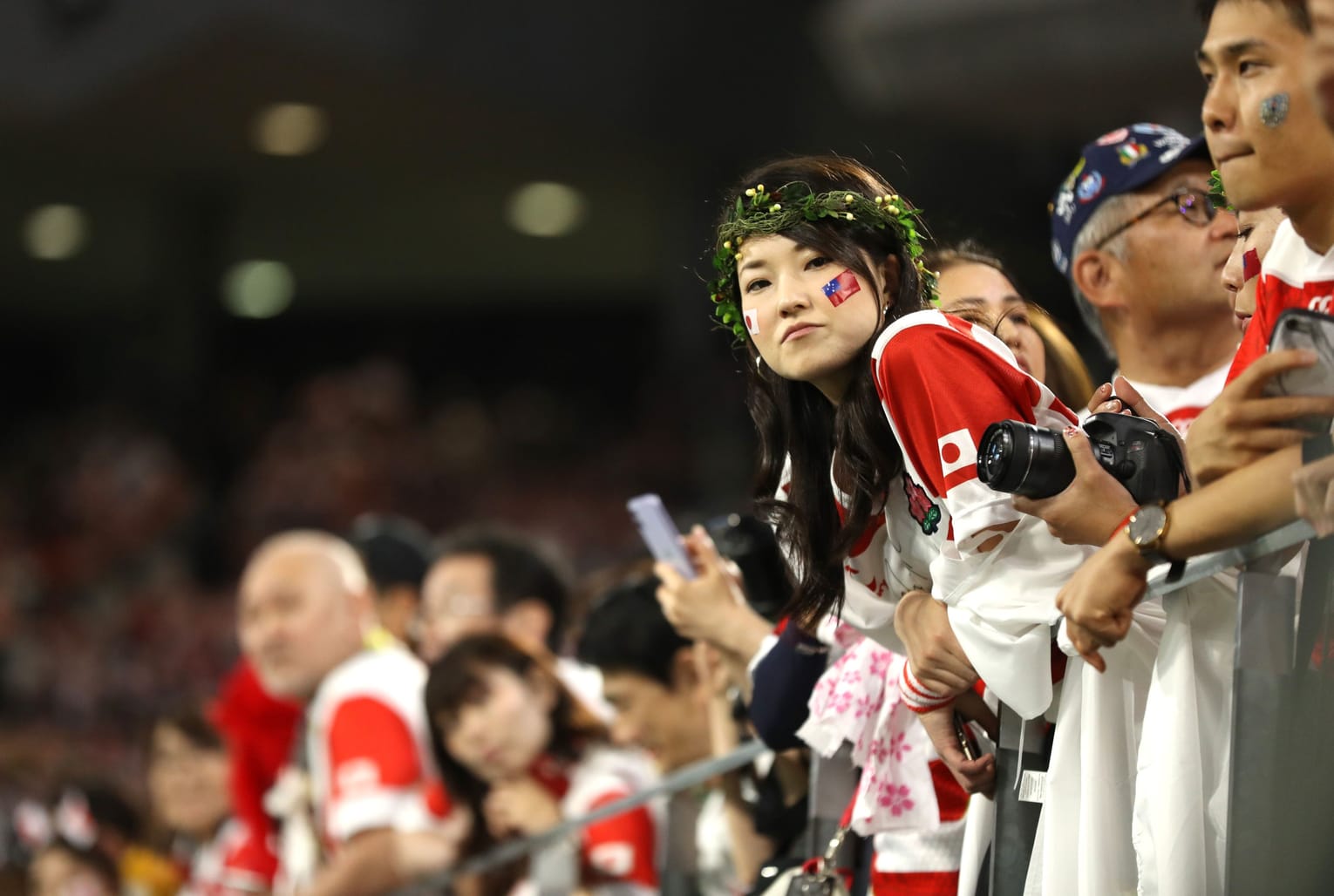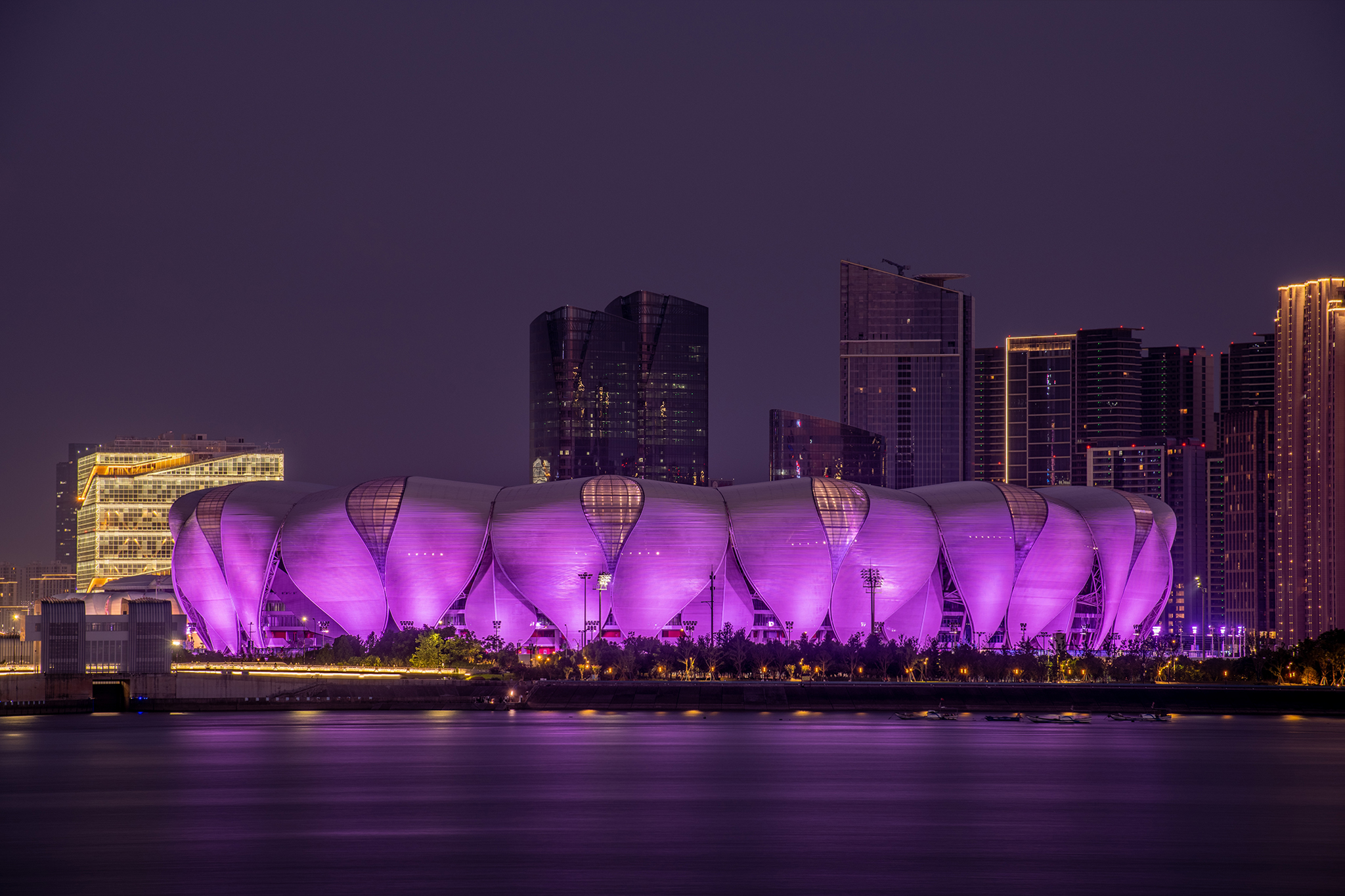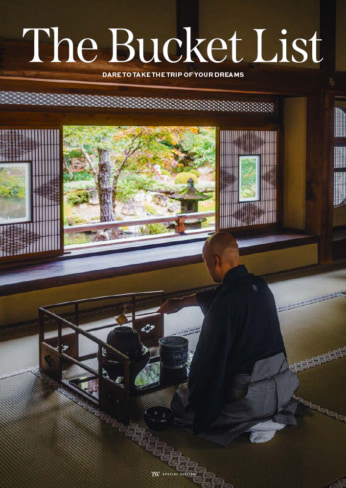In this week’s news roundup, we report on the arrest of contentious live streamer “Johnny Somali” for trespassing. Prime Minister Fumio Kishida instructs his Cabinet to draw up an economic package to ease inflation pain. And a district court orders the state and others to pay ¥350 million in damages to 128 unrecognized sufferers of Minamata disease. In sport, Japan set up a likely winner-takes-all clash with Argentina after defeating Samoa at the Rugby World Cup, Takakeisho triumphs at the Autumn Grand Sumo Tournament and the Asian Games begin in China.
‘Johnny Somali’ and His Accomplice Taken Into Custody
In the past few months, “Johnny Somali” has been trending in Japan for all the wrong reasons. The Kick streamer, whose real name is Ramsey Khalid Ismael, first made headlines in May for harassing passengers on trains with comments like “Hiroshima, Nagasaki… we do again.” Despite being forced into several public apologies, Somali continued to annoy locals and people online with his inflammatory videos. It led to him being physically attacked on a couple of occasions and the police being called. Many netizens were surprised and disappointed that he wasn’t arrested or deported.
You can only push the Japanese police so far, though. On September 21, Somali, 23, was finally taken in for questioning by officers in Osaka. The following day, his accomplice, Jeremiah Dwane Branch, 24, a fellow U.S. citizen, was also arrested. The pair allegedly trespassed at a hotel construction site in the Nipponbashi district of Chuo ward last month. A YouTube video shows a masked Somali shouting “Fukushima” at workers who asked him to leave. Branch shot the footage. According to reports, both men are refusing to speak to the police without a lawyer.

Fumio Kishida | Image by lev radin via Shutterstock
Economic Stimulus Package to be Drawn Up in October
Prime Minister Fumio Kishida instructed his Cabinet on Tuesday to draw up an economic stimulus package to boost wages while also dealing with the pain of escalating costs in this country. “We’ve come through the pandemic, and everyone is now struggling with high prices,” he said. “We want to implement economic measures to appropriately return to the public the increased tax revenues, which are the result of growth.” The PM didn’t say how much the supplementary budget for the package will be. According to some ruling party lawmakers, it will require between ¥15 trillion and ¥20 trillion.
“It is apparent that the prime minister intends to dissolve the lower house before submitting the supplementary budget,” said Katsuya Okada, secretary general of the opposition Constitutional Democratic Party of Japan. Several other opposition lawmakers criticized Kishida, suggesting he’s using the package to entice voter support ahead of an inevitable snap election. As the PM hasn’t clarified a political timetable, speculation is growing that he could call for one before the end of the year. That’s despite a low support rate. According to opinion polls, approval ratings for his Cabinet have remained largely unchanged despite the recent reshuffle.
State Ordered to Compensate 128 Unrecognized Minamata Disease Sufferers
On Wednesday, the Osaka District Court ordered the central government, Kumamoto prefectural governments and Chisso Corporation to pay over ¥350 million — ¥2.75 million to each individual — in damages to 128 sufferers of Minamata disease. The plaintiffs were previously not covered by a special measures law in 2009 that provided relief to victims. They filed a lawsuit in 2014, seeking ¥576 million — ¥4.5 million each — in compensation. While they didn’t get that much, Presiding Judge Yuki Tatsuno ruled in their favor, stating that Minamata disease was the only plausible explanation for their symptoms.
Minamata disease was officially recognized in 1956 after people in Minamata city started displaying puzzling symptoms such as having difficulty walking and speaking. The culprit was eventually identified as the chemical company Chisso Corporation. One of its factories had been dumping methylmercury into Minamata Bay since 1932. This contaminated the fish, which was then eaten by locals. The first legal action to be taken against Chisso was by 112 patients in 1969. Several lawsuits followed, but a rigid interpretation of the disease meant acquiring compensation proved difficult. In 2009, around 38,000 people received ¥2.1 million in lump-sum payments.

Photo by Francois Nel – World Rugby via Getty Images
Japan Defeat Samoa at Rugby World Cup
Japan will play Argentina next Sunday for a place in the quarterfinals of the Rugby World Cup. The Brave Blossoms deservedly won their crucial third game of the pool-stage 28-22 against Samoa on Thursday thanks to tries from Pieter “Lappies” Labuschagne, Michael Leitch and captain Kazuki Himeno. The Pacific Islanders played most of the second half with 14 men yet gave Japan a real fright with two tries in the last 15 minutes. In the end, though, Jamie Joseph’s side held on to set up a likely winner-takes-all encounter against Los Pumas in Nantes.
Also at the World Cup, Australian rugby coach Eddie Jones denied reports linking him to the Japan job following his side’s 40-6 defeat to Wales that leaves them on the brink of a first-ever pool-stage exit. On Sunday, The Sydney Morning Herald claimed he took part in a Zoom interview with the JRFU days before the tournament. “I don’t know what you’re talking about mate,” was his response when quizzed about it at a press conference. Jones guided Japan to a stunning victory over South Africa in 2015. Joseph is stepping down as coach after the tournament.
Takakeisho Wins Autumn Grand Sumo Tournament
Takakeisho (born Takanobu Sato) began the Autumn Grand Sumo Tournament knowing he was eight defeats away from becoming a kadoban ozeki. That would mean a demotion to the rank of sekiwake. In the end, though, he lost just four bouts and, in doing so, captured his fourth top division title. Going into the 15th and final day, Takakesiho had 10 wins, one behind rank-and-file sensation Atamifuji. Following the latter’s loss to former ozeki Asanoyama, Takakesiho tied the leaderboard with a victory over sekiwake Daieisho. He then triumphed in the play-off, slapping down his younger opponent.
Atamifuji (born Sakutaro Takei), who turned 21 a few days before the tournament, has created a real buzz in the sumo world. He was one of the fastest in the history of the sport to reach the top division of makuuchi. Had he held on to the lead on the final day in Tokyo, he would have become the third youngest wrestler to capture the Emperor’s Cup since 1958, when the current format of six championships a year began. He picked up the Fighting Spirit Prize and it’s been touted that a first title isn’t far away.

Hangzhou Olympic Sports Expo Center | Image by Tao Jiang via Shutterstock
Asian Games Begins in China
In other sports news, the 2022 Asian Games — delayed a year — kicked off in Hangzhou, China on Saturday. Close to 12,500 athletes are competing at the event, which is much more than the 10,500 expected to head to Paris for the Olympics next summer. Japan, at the time of writing, has amassed 19 golds, 31 silvers and 32 bronze medals. Highlights have included swimmer Tomoru Honda topping the podium ahead of compatriot Daiya Seto in the men’s 400-meter individual medley and 15-year-old skateboarder Hinano Kusaki capturing the top prize in the women’s park competition.
In men’s European soccer, Kaoru Mitoma was the hero as Brighton moved up to third in the Premier League with a 3-1 win over Bournemouth. The left-winger bagged a brace for the Seagulls after coming on at half-time. Takefusa Kubo grabbed the opener for Real Sociedad as they defeated Getafe 4-3. Keito Nakamura, meanwhile, scored his first goal for Reims, who beat Lille 2-1. There were also goals this week for Celtic’s Reo Hatate and Daizen Maeda, as well as FC Nürnberg’s Kanji Okunuki. In the German Cup, 19-year-old Taichi Fukui made his debut for Bayern Munich.
Updated On January 22, 2024








